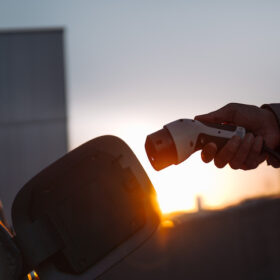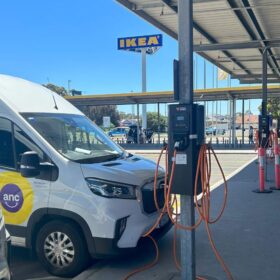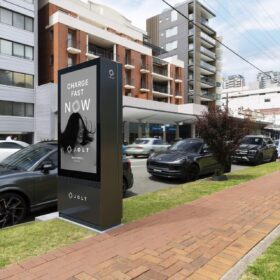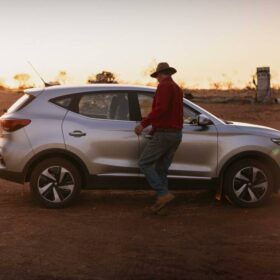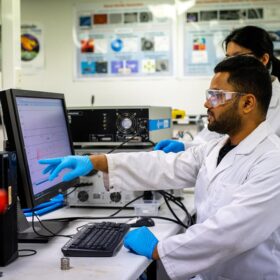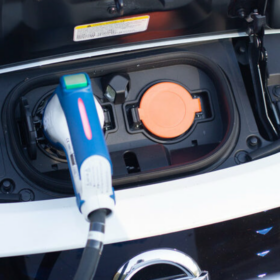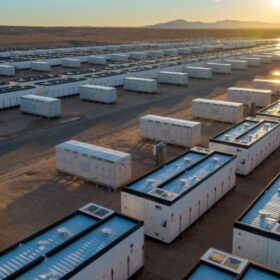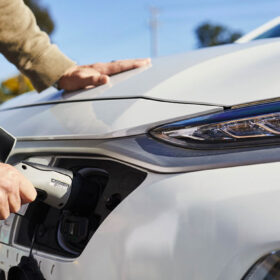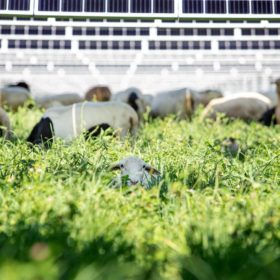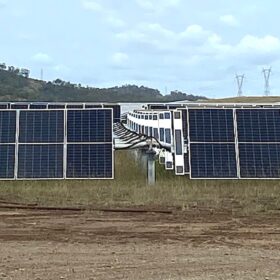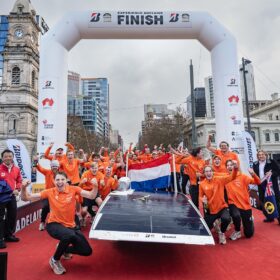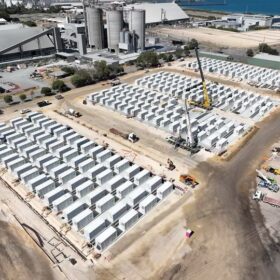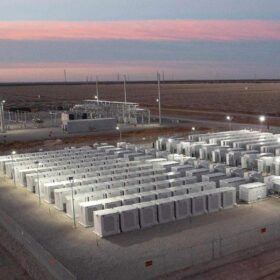Road trip showcases suitability of charging infrastructure for shift to EVs
A long-haul road trip along Australia’s east coast in an electric vehicle has demonstrated the nation’s readiness for the shift to full battery vehicles with the driver declaring the existing charging infrastructure has made range anxiety a thing of the past.
Experts plug in top tips to fast track Australia’s EV transition
A team of researchers from the University of Queensland has detailed five key recommendations needed to accelerate Australia’s transition to electric vehicles and ready the country’s infrastructure for an ‘influx’ of EVs.
Ikea aims to drive EV uptake with nationwide charging network
The Australian arm of Swedish furniture giant Ikea will partner with Melbourne-based electric vehicle charging infrastructure company Jet Charge to establish a national charging network at its stores across the country.
NSW plans 390 new charging sites to accelerate EV uptake
Jolt Charge will install 65 free electric vehicle charging sites across Sydney in the coming 12 months after the New South Wales government committed $4.1 million to support the largest rollout of public kerbside electric vehicle chargers in the country.
New dates, rules for 2025 Bridgestone World Solar Challenge
The organisers of the Bridgestone World Solar Challenge have announced a new set of dates for the 2025 edition of their unique 3,000-kilometre solar car race across the Australian continent, along with some regulation changes.
EV battery range and price discrepancies good news for buyers
Despite a rapidly evolving electric vehicle market, myths that they are unsuited to Australian roads have persisted. According to the Electric Vehicle Council, there remains a misconception that EVs are unsuited to Australian conditions due to low battery ranges, the landscape and the country’s immature EV charging infrastructure.
Lithium-sulphur battery player claims to have nailed safety standards
Queensland battery tech company Li-S Energy claims to have taken a significant step towards proving the safety of its semi-solid-state lithium sulfur batteries with the third-generation technology successfully passing a series of nail penetration tests.
Horizon puts V2G technology to test in state first
West Australian regional energy provider Horizon Power has plugged in a vehicle-to-grid technology test in the northern resort town of Exmouth to trial the potential of bidirectional electric vehicle charging to optimise the use of renewable energy while maintaining network reliability.
IEA calls for sixfold expansion of global energy storage capacity
The International Energy Agency has issued its first report on the importance of battery energy storage technology in the energy transition. It has found that tripling renewable energy capacity by 2030 would require 1,500 GW of battery storage.
Report shows car batteries can optimise power grid
A report commissioned by the Australian Renewable Energy Agency has found that if 10% of the nation’s vehicles are electric and utilise vehicle-to-grid connections, they could reduce peak electricity demand at local substations by 6% and save car owners hundreds of dollars per year on charging costs.

